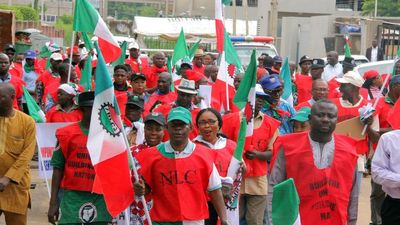The Nigerian Government Has Agreed to a 66 Percent Minimum Wage Increase
A nationwide strike was called off after President Buhari agreed to worker's demands for increased minimum wage.
Trade unions reached an agreement with the Nigerian government on Tuesday to raise the country's minimum wage by 66 percent.
A worker's strike that was slated to be held today by members of the Nigerian Labor Congress was suspended after the government agreed to raise the national minimum wage from 18,000 naira ($50) to 30,000 naira ($83) a month, in a proposal set forth by the Tripartite Committee on National Minimum Wage.
The strike had the potential to shut down the country's economy as many labor strikes have in the past. The union has sent a report for President Buhari's review, says Nigerian Labor Congress spokesperson Benson Upa.
"Following... the signing of the final report recommending 30,000 naira as the recommended new national minimum wage... the strike called to commence tomorrow has been suspended," said the National Labor Congress' General Secretary Ozo-Eson.
"We all need to stand ready in a state of full mobilization in case future action becomes necessary to push for the timely enactment and implementation of the new minimum wage," he added.
Unions initially pushed for a 50,000 naira ($164) a month minimum wage, which the government declined, reports Reuters.
With Nigeria's elections nearing, Buhari will undoubtedly face questions regarding his economic policies. To some, this move appears as an attempt to gain favor amongst working class citizens, and the country's youth in particular. For now, the increased minimum wage is being seen as a victory for workers and labor rights unions.
Other commentators online, however, have pointed out that the wage remains considerably low, especially considering the types of salaries Nigerian politicians are known to take in.
